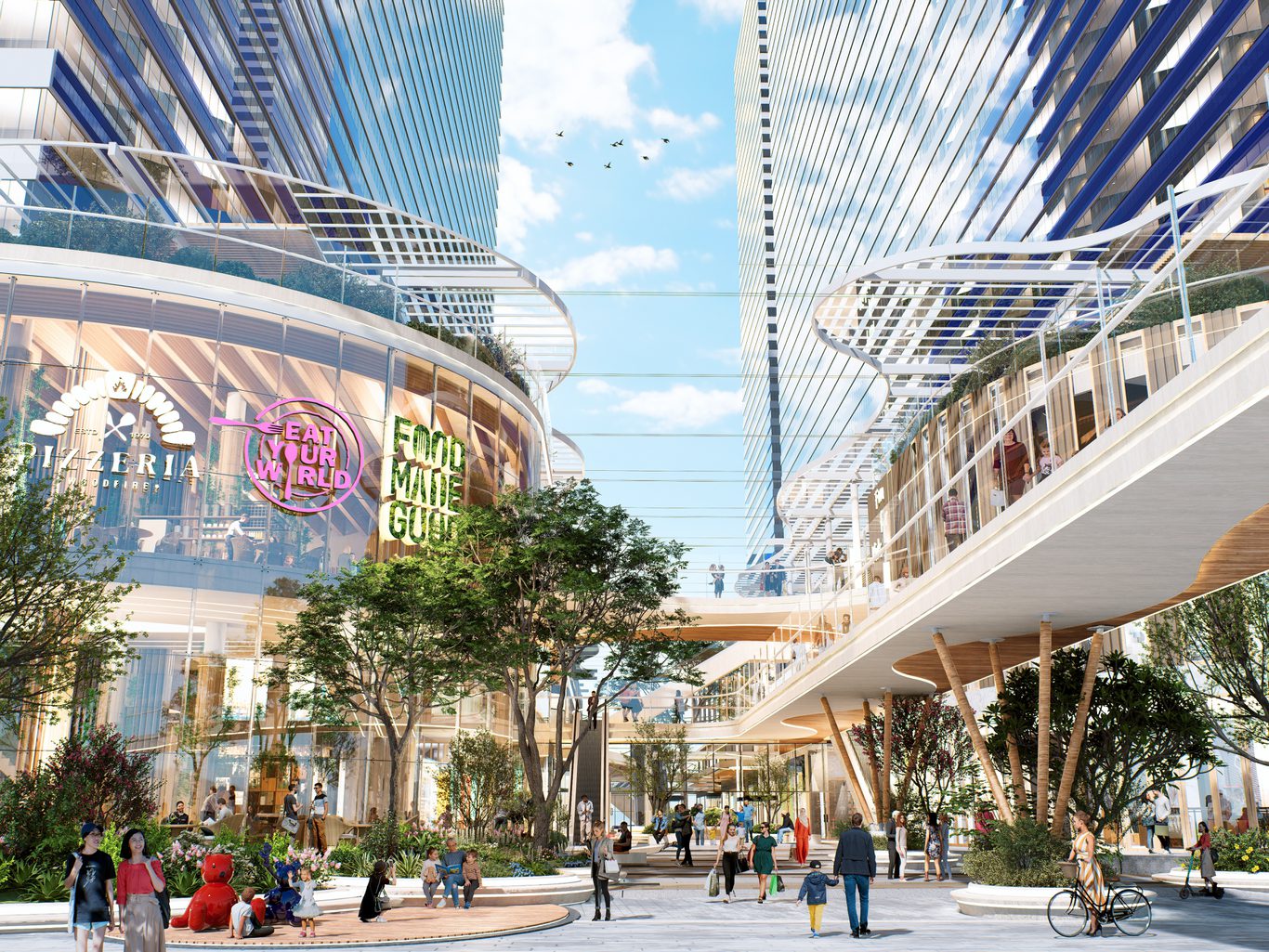
Chapman Taylor Designs Major Mixed-Use Destination for Orbi Group in Batumi, Georgia
Chapman Taylor Designs Major Mixed-Use Destination for Orbi Group in Batumi, Georgia
Chapman Taylor is delighted to be working with Orbi Group on the design of a significant new mixed-use destination in Batumi, Georgia. The ORBI City project will transform a key site on the Black Sea coast into a vibrant urban quarter that combines retail, hospitality, business, and entertainment uses.
Located in Georgia’s second-largest city, Batumi, the project enjoys a unique setting within a subtropical zone near the Lesser Caucasus Mountains. As a major Black Sea port and gateway for oil and agricultural transit from Central Asia, Batumi is increasingly emerging as a hub for investment and tourism. The new development supports the city’s dynamic growth and ambitions to become a major international destination.
Working from Concept Design through to Scheme Design stages since late 2024, Chapman Taylor is leading the design for this ambitious scheme on behalf of Orbi Group — one of Georgia’s most prominent real estate developers. Known for its transformative high-rise residential and hospitality developments, Orbi Group has played a leading role in shaping Batumi’s evolving skyline and lifestyle offering.
The development will deliver a wide range of uses, with a total Gross Built Area of 126,139m², including:
-
Retail: 27,705m²
-
F&B: 6,347m²
-
Convention Centre: 4,719m²
-
Casino: 5,791m²
-
Offices: 8,672m²
-
Club: 1,720m²
-
Market: 2,855m²
-
Hotel: 5,997m²
-
Mall: 8,159m²
-
Landscaped Areas: 16,121m²
-
Parking: 26,620m²
The scheme is designed to create a dynamic and integrated environment for both residents and visitors, reflecting Orbi Group’s vision of combining hotel-style amenities with long-term ownership models. The development places a strong emphasis on high-quality public realm and landscaping, with over 16,000m² of green and open space interwoven into the masterplan.
The ORBI City project represents a major milestone in Chapman Taylor’s growing portfolio in the Caucasus region and highlights our expertise in delivering large-scale, mixed-use destinations tailored to their urban and cultural contexts.
Located in Georgia’s second-largest city, Batumi, the project enjoys a unique setting within a subtropical zone near the Lesser Caucasus Mountains. As a major Black Sea port and gateway for oil and agricultural transit from Central Asia, Batumi is increasingly emerging as a hub for investment and tourism. The new development supports the city’s dynamic growth and ambitions to become a major international destination.
Working from Concept Design through to Scheme Design stages since late 2024, Chapman Taylor is leading the design for this ambitious scheme on behalf of Orbi Group — one of Georgia’s most prominent real estate developers. Known for its transformative high-rise residential and hospitality developments, Orbi Group has played a leading role in shaping Batumi’s evolving skyline and lifestyle offering.
The development will deliver a wide range of uses, with a total Gross Built Area of 126,139m², including:
- Retail: 27,705m²
- F&B: 6,347m²
- Convention Centre: 4,719m²
- Casino: 5,791m²
- Offices: 8,672m²
- Club: 1,720m²
- Market: 2,855m²
- Hotel: 5,997m²
- Mall: 8,159m²
- Landscaped Areas: 16,121m²
- Parking: 26,620m²
The scheme is designed to create a dynamic and integrated environment for both residents and visitors, reflecting Orbi Group’s vision of combining hotel-style amenities with long-term ownership models. The development places a strong emphasis on high-quality public realm and landscaping, with over 16,000m² of green and open space interwoven into the masterplan.
The ORBI City project represents a major milestone in Chapman Taylor’s growing portfolio in the Caucasus region and highlights our expertise in delivering large-scale, mixed-use destinations tailored to their urban and cultural contexts.







